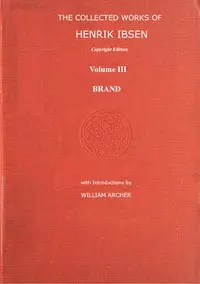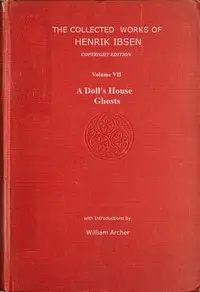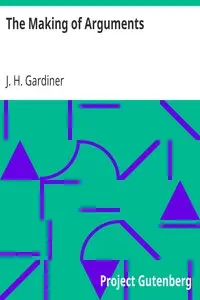"John Gabriel Borkman" by Henrik Ibsen is a four-act play written in the late 19th century. The story centers around John Gabriel Borkman, a former bank director whose financial scandal led to his imprisonment and subsequent fall from grace. The central themes revolve around ambition, familial relationships, and the struggle for redemption, illustrated through the interactions of Borkman with his wife Gunhild, his son Erhart, and his sister-in-law Ella. At the start of the play, the audience is introduced to the characters and the lingering tension surrounding Borkman’s past. The scene unfolds in the drawing room of the Borkman household, where Gunhild, his cold and composed wife, reveals her disdain for her husband as they both reflect on the shame brought upon their family name due to Borkman's previous actions. Ella Rentheim, Gunhild's twin sister, arrives after an extended absence, further igniting old conflicts and demonstrating the complex dynamics between the family members. Borkman’s ghostly presence looms as he is depicted as a tragic figure, consumed by his past failures and the delusions of his imminent return to power. The dialogue establishes an atmosphere of tension and anticipation, setting the stage for the unfolding drama and the characters’ intertwined fates. (This is an automatically generated summary.)

John Gabriel Borkman
By Henrik Ibsen
"John Gabriel Borkman" by Henrik Ibsen is a four-act play written in the late 19th century. The story centers around John Gabriel Borkman, a former ba...
Henrik Johan Ibsen was a Norwegian playwright and theatre director. As one of the founders of modernism in theatre, Ibsen is often referred to as "the father of realism" and the most influential playwright of the 19th century, as well of one of the most influential playwrights in Western literature more generally. His major works include Brand, Peer Gynt, Emperor and Galilean, A Doll's House, Ghosts, An Enemy of the People, The Wild Duck, Rosmersholm, Hedda Gabler, The Master Builder, and When We Dead Awaken. Ibsen is the most frequently performed dramatist in the world after Shakespeare, and A Doll's House was the world's most performed play in 2006.












